The Baron Hotel in Aleppo
A Timeless Icon of Hospitality and HistoryThe Baron Hotel in Aleppo: A Timeless Icon of Hospitality and History
The history of luxury hotels in Aleppo is deeply intertwined with the region’s cultural and political tapestry. The story begins in the late 19th century, with the Mazloumian family’s vision to modernise hospitality in a city that served as a bustling crossroads for commerce and culture.
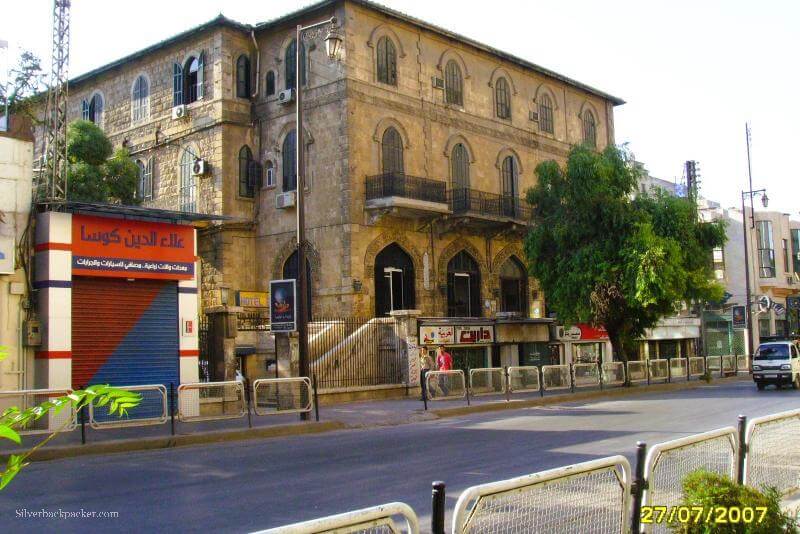
The Ararat Hotel: A Pioneer
Around 1870, an Armenian pilgrim from the Mazloumian family, on his way to Jerusalem, noted the discomfort European travellers faced while lodging in Aleppo’s caravanserais. Determined to provide a solution, he established the Ararat Hotel, Aleppo’s first modern hotel. This initiative marked a significant shift in regional hospitality standards, accommodating the needs of international travellers in the growing cosmopolitan hub.
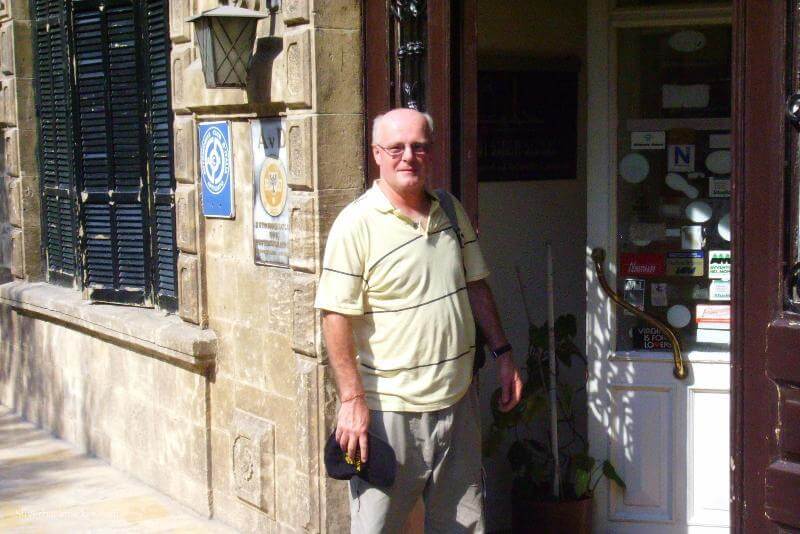
The Origins of an Icon
The story of the Baron Hotel began with a vision to position Aleppo as a key destination along the trade routes connecting Europe and the Middle East. The Mazloumian family sought to create a hotel that would rival the finest establishments in Europe. Its name, “Baron,” was chosen to evoke an air of sophistication, and its neo-classical façade reflected this ambition. From the outset, the hotel offered state-of-the-art amenities for its time, including running water, electricity, and spacious rooms, which quickly set it apart from other accommodations in the region.
Aleppo, strategically located at the crossroads of ancient trade routes, was a bustling centre of commerce in the early 20th century. Diplomats, traders, and travellers sought comfort and luxury, and the Baron Hotel provided exactly that.
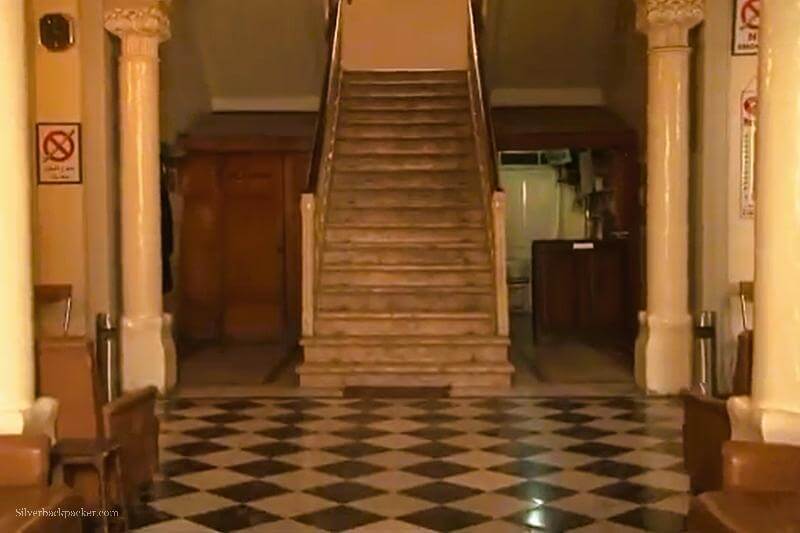
The Baron Hotel: A Legacy of Grandeur
Building on the success of the Ararat Hotel, the Mazloumian Brothers expanded their endeavours. In 1909, amidst lush gardens on the city’s outskirts, construction began on what would become the iconic Baron Hotel. Initially comprising one floor, the hotel expanded over the years, adding a second floor in 1911 and a third in 1940. Its architecture and elegance reflected Aleppo’s standing as a key urban centre.
The Golden Years
The hotel’s second floor, in particular, became legendary, hosting luminaries like:
- Lawrence of Arabia in room 202.
- Agatha Christie, reportedly drafting Murder on the Orient Express in room 203 (though this claim is contested by Istanbul’s Pera Palace).
- King Faisal, who proclaimed Syria’s independence from room 215’s balcony.
The Presidential Suite saw an illustrious roster of guests, including:
- King Gustav Adolf VI of Sweden
- Gamal Abdel Nasser, Egypt’s president
- Hafez Al-Assad, Syria’s former president
- Sheikh Zayed bin Sultan Al Nahyan, the UAE’s founding father
- David Rockefeller, the American business magnate
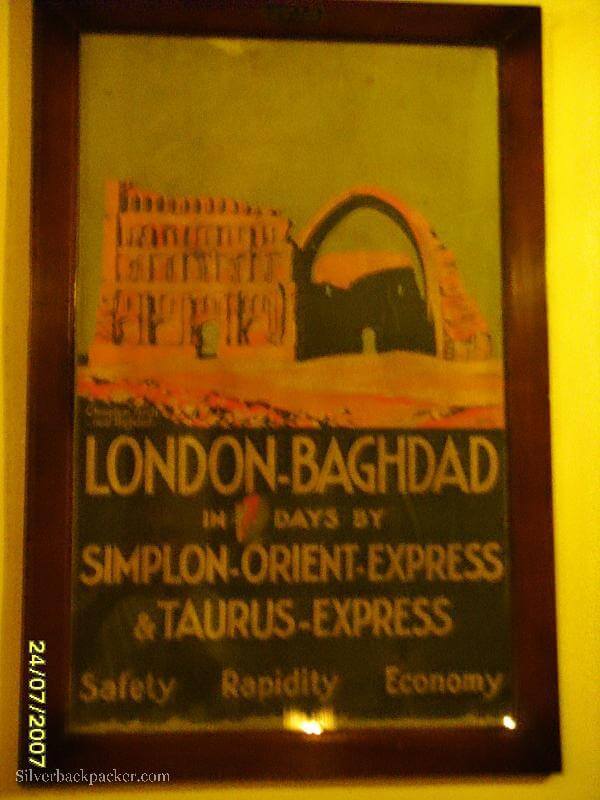
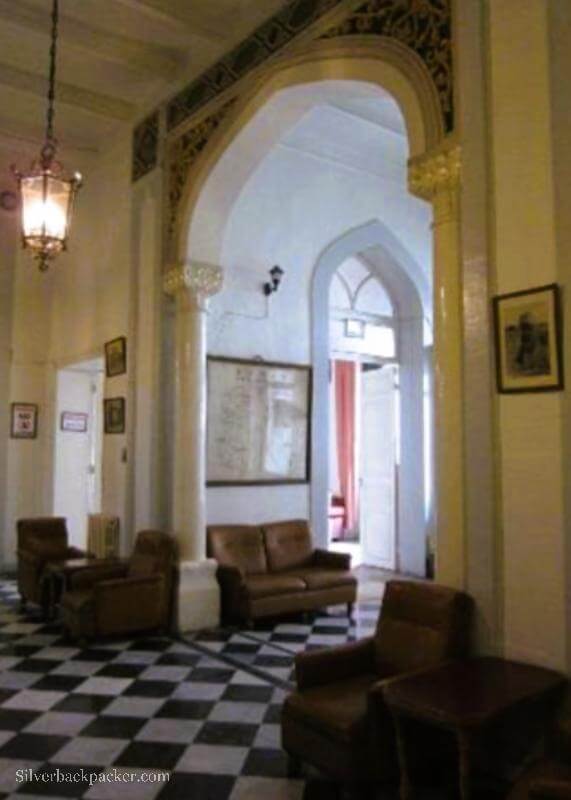
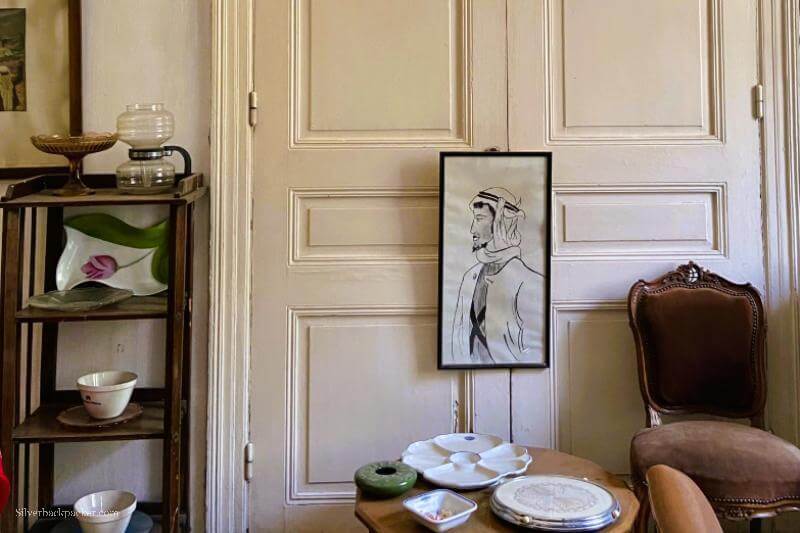
A Guestbook of Legends
The Baron Hotel gained fame for its distinguished guests, whose names fill its guestbook with a legacy of historical significance. T.E. Lawrence, famously known as Lawrence of Arabia, stayed at the hotel and is said to have drafted parts of his memoir, Seven Pillars of Wisdom, in one of its rooms. Today, visitors can see the room where he stayed, a small homage to the enigmatic British officer.
Agatha Christie, the celebrated crime novelist, also frequented the Baron. Legend has it that she wrote sections of Murder on the Orient Express during her stays, drawing inspiration from her travels on the famous train route connecting Europe to the Middle East.
The Baron also played host to a variety of world leaders and cultural icons. King Faisal of Iraq proclaimed Syria’s independence from the balcony of Room 215, while Mustafa Kemal Atatürk, Charles de Gaulle, and King Gustav Adolf VI of Sweden all graced the hotel with their presence. Egyptian President Gamal Abdel Nasser, Syrian President Hafez Al-Assad, and Sheikh Zayed bin Sultan Al Nahyan of the UAE were also among its prominent guests.
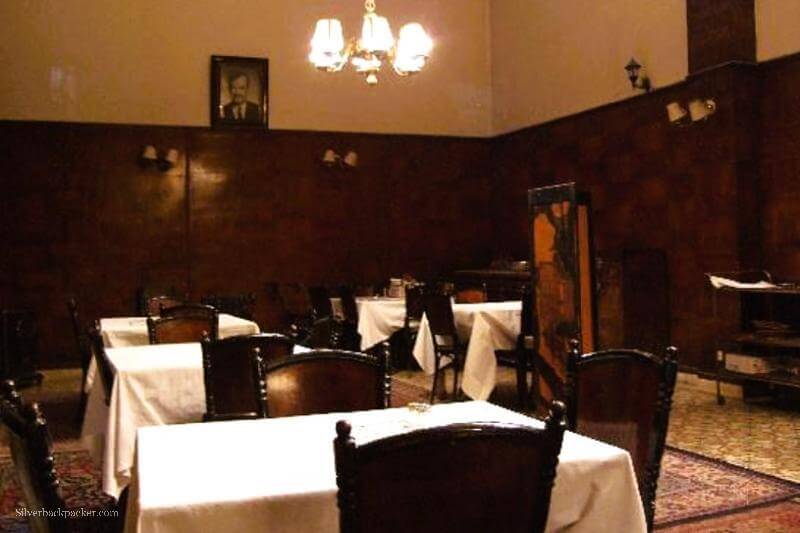
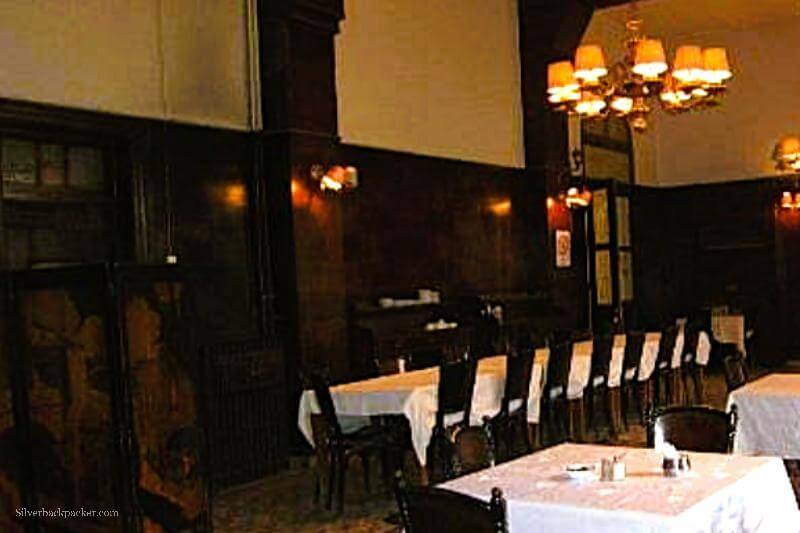
A Hub of Cultural Exchange
More than just a hotel, the Baron became a cultural melting pot. In its heyday, the dining room and bar resonated with conversations in numerous languages, reflecting the diversity of its clientele. Diplomats, archaeologists, journalists, and adventurers exchanged ideas and stories, creating a vibrant atmosphere of intellectual and cultural exchange.
Situated in Aleppo, a city steeped in history, the hotel’s location added to its appeal. Guests could explore the ancient souks, marvel at the iconic citadel, and visit historic mosques and churches before returning to the Baron to share their experiences over fine meals and drinks.
Preserving a Storied Past
The Baron Hotel’s interiors remain a testament to its storied history. Original furniture, vintage chandeliers, and historical photographs adorn its halls, offering visitors a sense of nostalgia. The Mazloumian family preserved artefacts left behind by guests, including personal letters and bills.
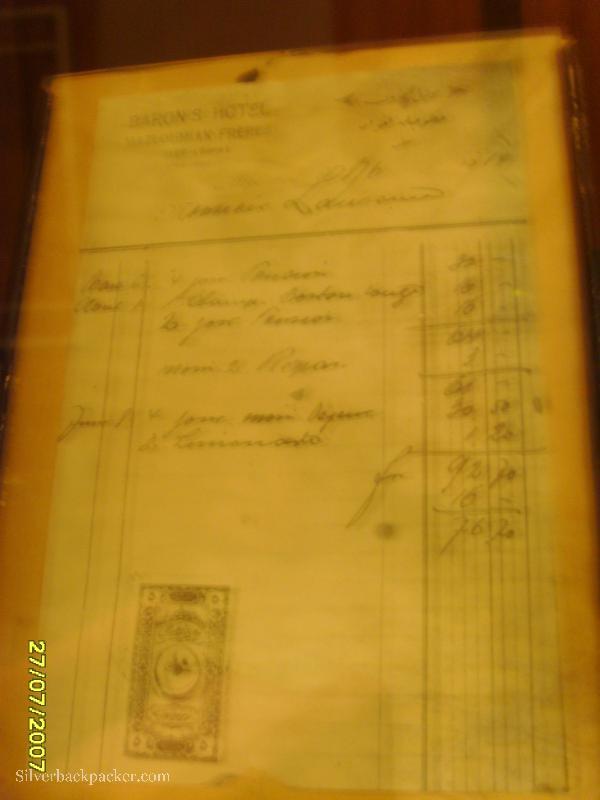
Even today, T.E. Lawrence’s unpaid bill remains a quirky footnote in its enduring story.
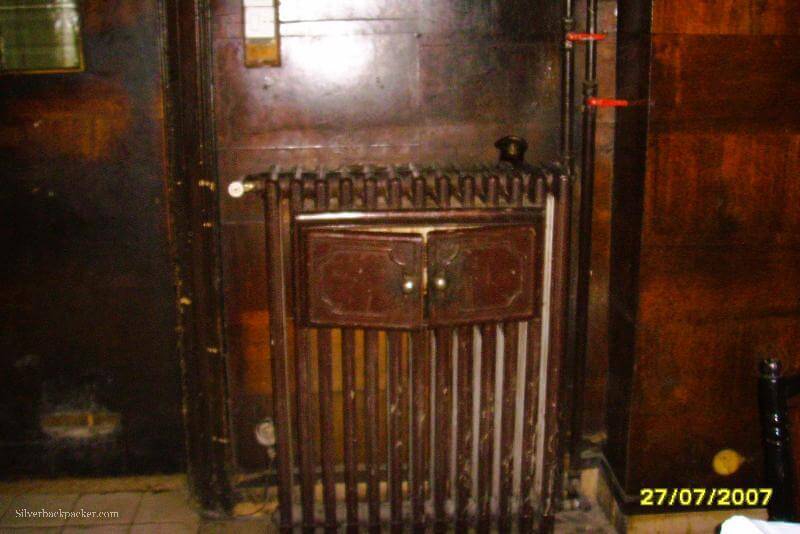
The Baron Hotel Today
Though its grandeur has faded with time, the Baron Hotel retains its historical significance. The Mazloumian family has worked diligently to maintain its legacy, ensuring that it remains a symbol of Aleppo’s golden age. For history enthusiasts and travellers alike, the Baron offers a unique opportunity to connect with a rich and vibrant past.
The Baron Hotel stands as a reminder of Aleppo’s role as a crossroads of cultures and ideas. Its walls have borne witness to moments of intrigue and triumph, hosting figures whose actions have shaped history. Visitors to Aleppo who appreciate the romance of travel and the allure of history will find the Baron Hotel an unforgettable destination. Even today, T.E. Lawrence’s unpaid bill remains a quirky footnote in its enduring story.
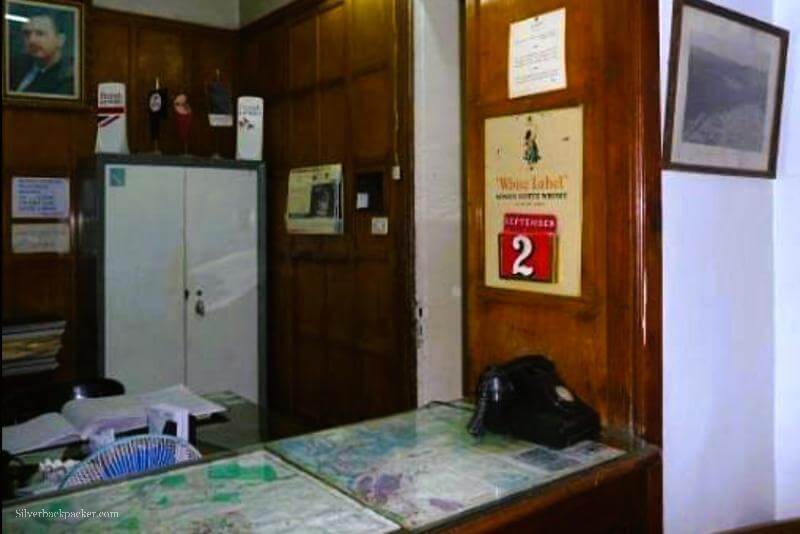
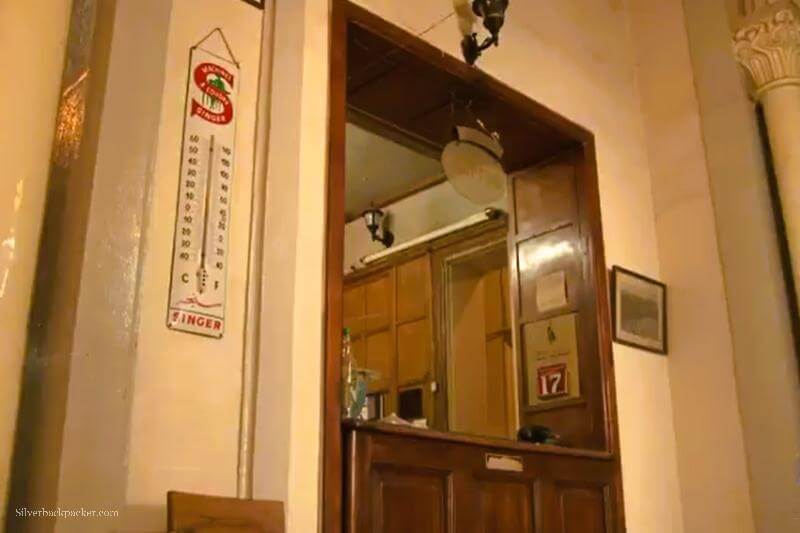
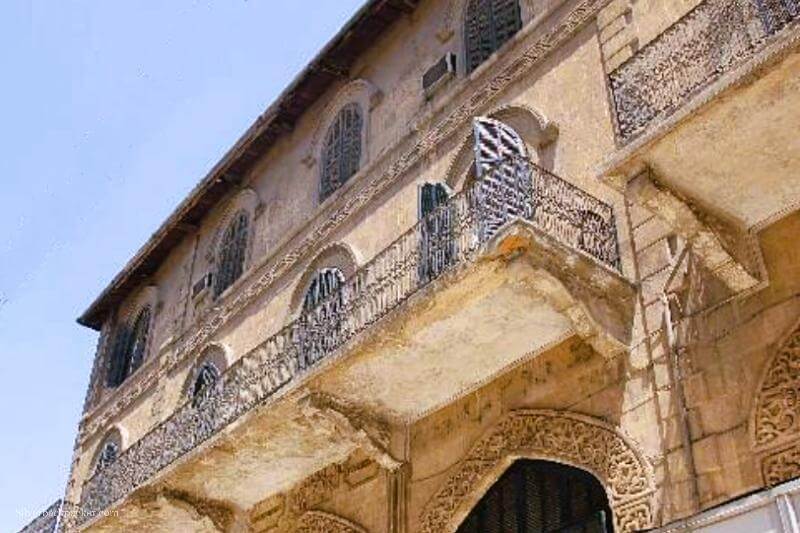
A Legacy of Aleppo’s Hospitality
The history of the Baron Hotel is deeply intertwined with the evolution of hospitality in Aleppo. The Mazloumian family’s efforts to modernise the city’s accommodations began with the Ararat Hotel in the late 19th century, a pioneering establishment that catered to European travellers. Building on this success, the family constructed the Baron in 1909, gradually expanding it over the years to meet growing demand.
Before World War II, the Baron Hotel became a meeting ground for both British and German guests with British agents covertly monitoring German activities, reflecting its status as a neutral space. Renowned Armenian writer Krikor Zohrab and other cultural figures were among its first visitors, setting the tone for its reputation as a centre of literary and intellectual activity.
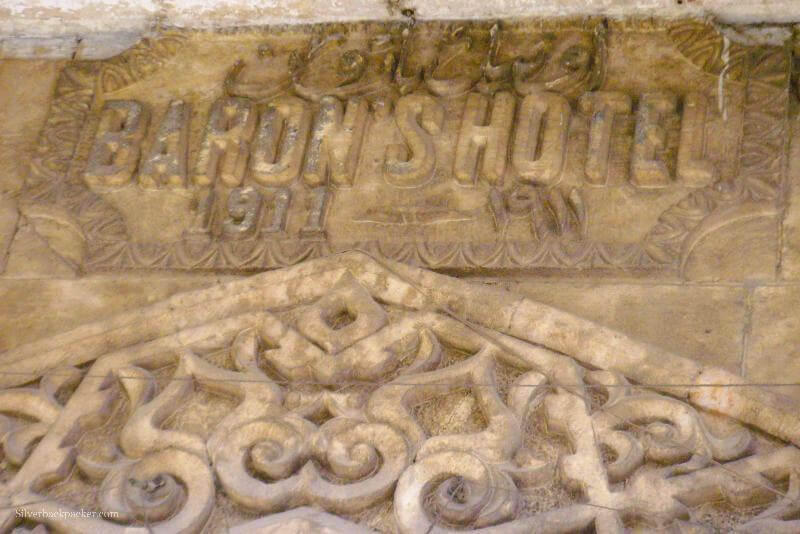
An Enduring Symbol
Despite the challenges of modern times, the Baron Hotel endures as a symbol of Aleppo’s vibrant history. Its story is one of ambition, resilience, and the enduring charm of a city that has long been a meeting place for cultures, ideas, and people from around the world. For those who step through its doors, the Baron remains a gateway to Aleppo’s fascinating past.

Essential Travel Guides
The Baron Hotel in Aleppo
Check Out These Related Posts
If you enjoyed reading “The Baron Hotel in Aleppo ” then please share this page with your friends.
Leave a comment below to let me know what you liked best.
Follow Silverbackpacker on Facebook, Instagram , Bluesky and Pinterest for more travel adventures and be notified about my latest posts and updates!
Thankyou for sharing 🙂
Please Note – All blog post photos on Silverbackbacker.com are of a lower quality to enable faster loading and save you data. If you would like to buy or license higher quality copies of any of the photographs you can email us at silverbackpackertravels@gmail.com
All photographs and content on this website remain the property of Silverbackpacker.com. Images may not be downloaded, copied, reproduced or used in any way without prior written consent.
Print purchases entitle the purchaser to the ownership of the image but not to the copyrights of the image which still remain with Silverbackpacker.com even after purchase.
Follow Silverbackpacker for more of his Travels
Facebook @silverbackpacker | Instagram @silverbackpacker
Twitter @silverbackpaker | Pinterest @silverbackpaker
Audere Est Facere – Silverbackpacker.com – To Dare is To Do
Affiliate Disclaimer: Links on this website may be affiliate links that could result in us receiving compensation when you purchase a product or service from that link. You do not pay any extra fees for these items. This helps us to keep this website going. Thank you for your support.
Disclaimer | Privacy Policy | Cookie Statement © All Rights Reserved

